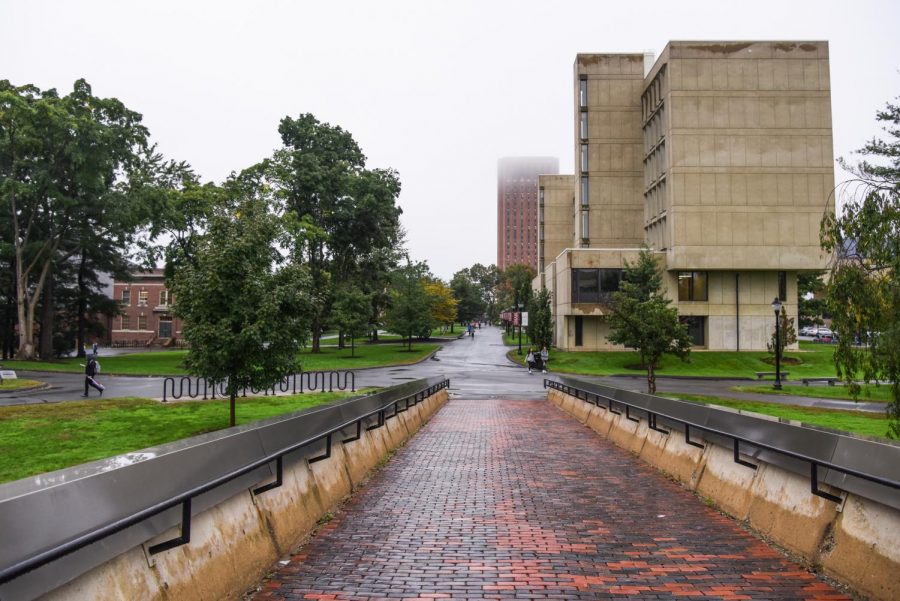The University of Massachusetts has received a $3 million ADVANCE Institutional Transformation grant from the National Science Foundation to develop initiatives to increase equity among underrepresented faculty in the STEM fields.
According to UMass News and Media Relations, the grant will be used by an interdisciplinary team from four UMass colleges; the College of Engineering, Information and Computer Sciences, Natural Sciences and Social and Behavioral Sciences to help promote equity and inclusion among male and female faculty of color in STEM fields.
The project is being run by principal investigator Anna Branch, the associate chancellor for equity and inclusion. According to Branch the project will be long-term with a focus providing opportunities and recognizing the work for STEM faculty members.
“It’s a five-year project that aims to bolster research collaboration among faculty, that aims to fill opportunities for faculty once a year and create mechanisms for recognition of the different kinds of work they do,” said Branch.
The project is being developed around three components: encouraging research collaboration, creating an inclusive community through mentoring and promoting shared decision-making and governance at the department level. Project plans have been developed based on research literature on “leadership development and organizational behavior to create pathways for faculty advancement.”
In addition, the ADVANCE investigators are looking into ways to expand mentoring services to create methods for faculty members to share their experience and insights with other faculty who may benefit from such mentoring.
As part of receiving the grant, the NSF requires that the project contributes to new research on gender equity in STEM academics. As a result, plans are being developed to conduct social research projects to fulfill this requirement.
According to the press release, the social science research projects will “investigate different dimensions of collaboration with a variety of research methodologies, to better understand the dynamics of intersectionality of race and gender, recognition of collaborative work and different governance contexts for faculty equity.”
The project will be assessed by internal and external evaluators to ensure the project is meeting its goals, Branch said.
Branch also noted that the project is expected to be entering the “building phase” in the next couple months, and more information will be shared with the campus at a future date.
“We’re eager to move from planning to implementation,” Branch said in the press release. “We’re taking steps to ensure that we build sustainable structures that scaffold equity and inclusion into our faculty advancement culture.”
Initial work, such as website creation and staff hiring, is currently underway and campus partners are being recruited to “translate the goals and programs at the college and school level.” The project is also working with the Provost’s Office to implement training for departmental leadership on mentoring and best practices.
Planning for the project began four years ago, where a team of male and female faculty conducted preliminary work, such as reviewing literature, collecting pilot data, developing hypotheses and building relationships with stakeholders to ultimately key in on the idea that “support for collaboration will advance equity for all women faculty and men faculty of color.” The release notes that the team of faculty included four women of color.
According to the ADVANCE Program page on the UMass website, the University plans to separately fund relevant grant activities to schools and colleges that are not funded by the NSF.
In addition, the page describes the plans for the program once the grant ends, noting that “the Office of Equity & Inclusion is leading the project to ensure that the successful ADVANCE project activities and practices are sustained beyond the award term and systematically integrated into the existing campus structure.”
UMass Provost John McCarthy expressed his gratitude for the work of the ADVANCE investigators and emphasized the need for the collaboration of faculty for the project to succeed.
McCarthy said, “We owe special thanks to the team of ADVANCE investigators who worked incredibly hard for several years to plan this project and secure the grant.”
“Faculty leadership generated the innovative research ideas that will inform ADVANCE, and the engagement of members of the broader community and academic leadership will be key to its success,” he added.
Will Mallas can be reached at [email protected] and followed on Twitter @willmallas.


